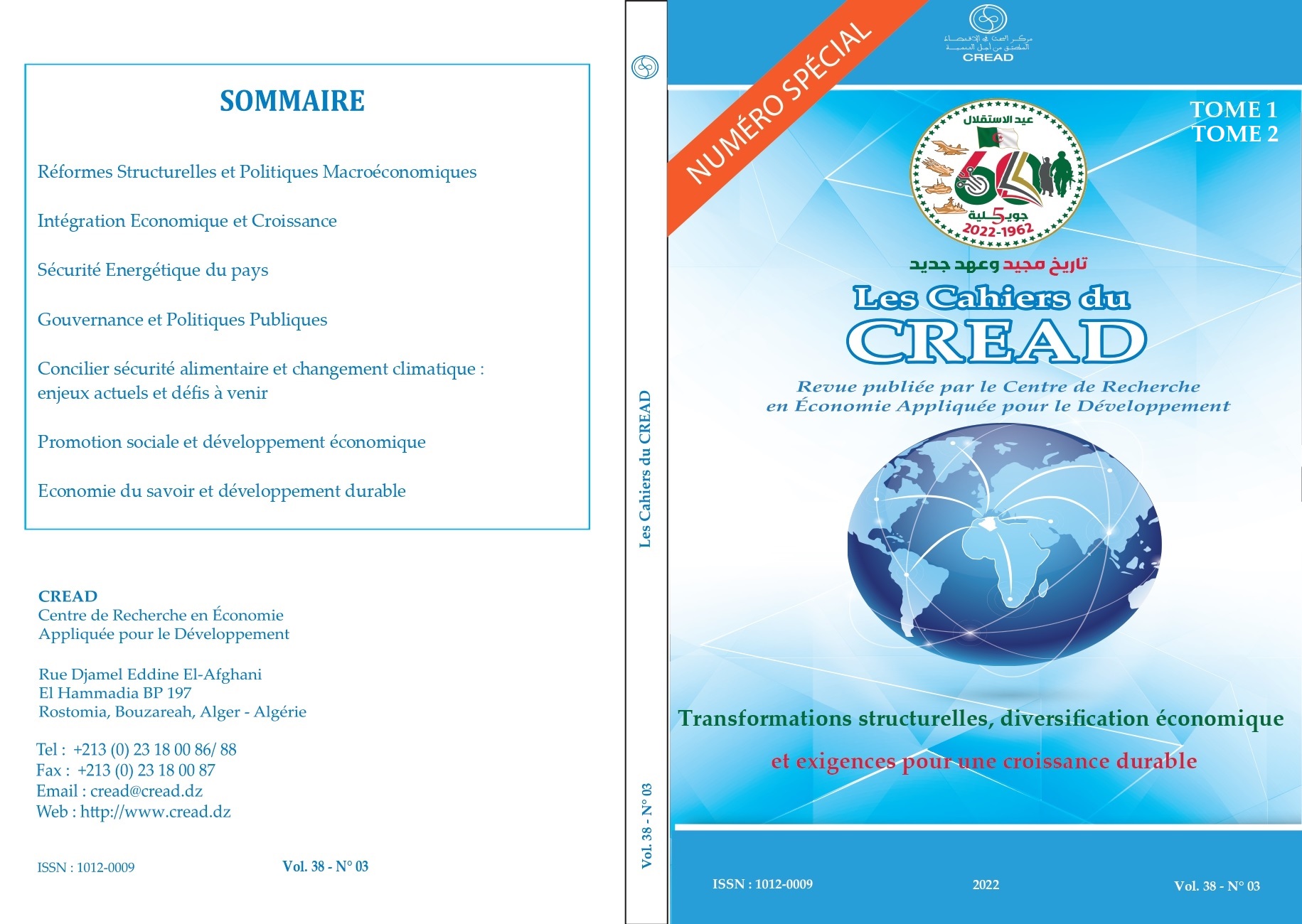OIL DEPENDENCE AND BUSINESS CYCLES IN ALGERIA: NEW KEYNESIAN DSGE FRAMEWORK ANALYSIS
Main Article Content
Abstract
This study aims to investigate the macroeconomic effect of oil price shock in Algeria at different levels of oil dependency. To do this, an extensive version of small open DSGE model developed by Medina and Soto (2005) has been used. This version of DSGE model is attentive to the fact that the Algerian economic structure is characterized by oil dependency, among other structural characteristics. After we calibrate model parameters, this paper presents simulation results for positive oil price shock to illustrate how the structure of the model and its theoretical underpinnings shape the transmission of the shock to real variables of the domestic economy. In particular, the paper shows 3D impulse responses for oil price shock and characterizes their impact on real GDP, CPI inflation, external position, and real effective exchange rate. The results show that when the level of oil dependency changes, real oil price shock affects differently on the key macroeconomic variables. High oil dependence makes the economy more vulnerable to oil price fluctuations compared to low oil dependence. Therefore, structural transformation is a clear necessity for Algerian economy.
